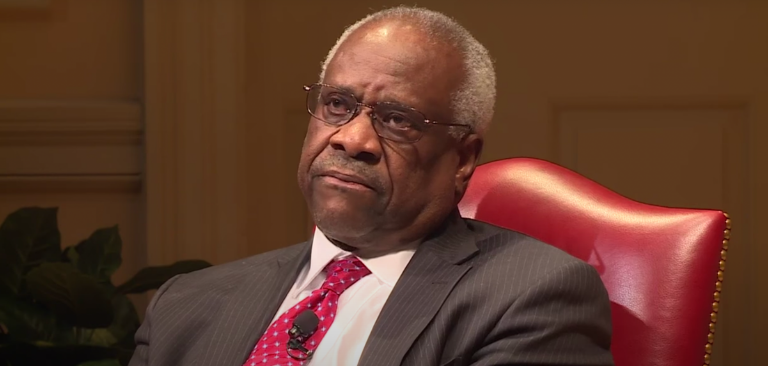The Supreme Court dismissed an appeal by former President Donald Trump in a case where a lower court declared it was unconstitutional for him to block critics on Twitter, suggesting that it was no longer relevant.
Supreme Court Justice Thomas Clarence took the time to warn about the power of large social media platforms like Twitter.
The case was previously heard in the Second Circuit Court of Appeals, which ruled against Trump, claiming that, because he used his account to discuss political matters, his tweets were a public forum, therefore protected by the First Amendment – as such, blocking certain commenters amounted to discrimination.
But today, the Supreme Court dismissed the case because Trump is no longer president and the fact that Twitter permanently suspended him from the platform.
Justice Thomas also highlighted the complexity of the case.
“[I]t seems rather odd to say that something is a government forum when a private company has unrestricted authority to do away with it,” Thomas wrote in a concurring opinion you can get in full here.
“Because unbridled control of the account resided in the hands of a private party, First Amendment doctrine may not have applied to respondents’ complaint of stifled speech,” Thomas added. He further stated that “whether governmental use of private space implicates the First Amendment depends on the government’s control over that space.”
In Thomas’ opinion, existing legislation does not easily address the complexities of modern technology.
He believes that the Supreme Court “will soon have no choice but to address how our legal doctrines apply to highly concentrated, privately owned information infrastructure such as digital platforms.”
Another complexity in the case is the power social media sites like Twitter have.
“The Second Circuit feared that then-President Trump cut off speech by using the features that Twitter made available to him,” Thomas said.
“But if the aim is to ensure that speech is not smothered, then the more glaring concern must perforce be the dominant digital platforms themselves. As Twitter made clear, the right to cut off speech lies most powerfully in the hands of private digital platforms. The extent to which that power matters for purposes of the First Amendment and the extent to which that power could lawfully be modified raise interesting and important questions.”
Thomas had more to say about Big Tech and the current state of affairs, signaling that he believes that platforms such as Facebook and Twitter should be treated as public utilities.
“Today’s digital platforms provide avenues for historically unprecedented amounts of speech, including speech by government actors. Also unprecedented, however, is the concentrated control of so much speech in the hands of a few private parties,” Thomas said, arguing that some digital platforms are “sufficiently akin” to common carriers such as telecoms companies. “A traditional telephone company laid physical wires to create a network connecting people,” Thomas wrote. “Digital platforms lay information infrastructure that can be controlled in much the same way.”
Thomas suggested that such large Big Tech platforms that have incredible market power should be bound by similar restrictions of the First Amendment.
“If the analogy between common carriers and digital platforms is correct, then an answer may arise for dissatisfied platform users who would appreciate not being blocked: laws that restrict the platform’s right to exclude,” Thomas wrote.










